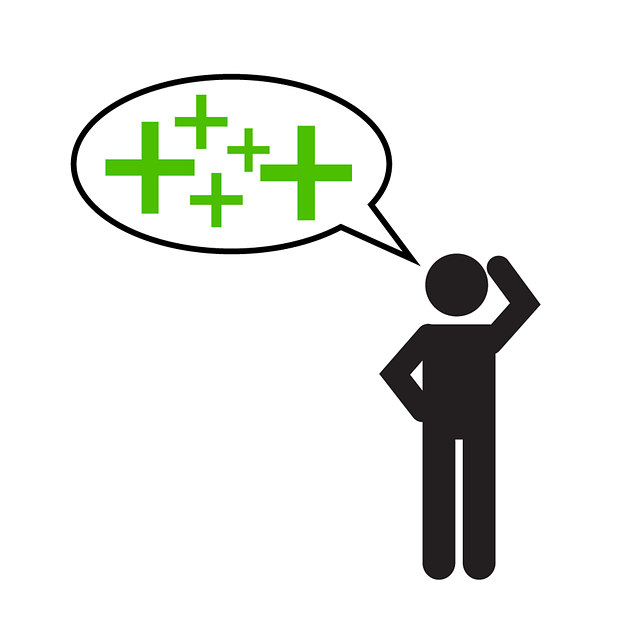CBT Therapy: A Powerful Approach to Mental Health Management
Cognitive Behavioral Therapy (CBT) is a highly effective talk therapy that targets negative thought patterns and behaviors, addressing various mental health conditions like depression, anxiety, PTSD, and OCD. It encourages active participation in healing, promoting self-awareness and practical coping skills. CBT equips individuals with tools to challenge irrational beliefs, manage symptoms, and prevent relapse, ultimately improving overall mental well-being. Through structured sessions, therapists guide clients towards positive change by facilitating self-reflection, teaching stress management, and providing tailored coping strategies. Integrating CBT into daily life involves journaling thoughts, setting achievable goals, and continually adjusting them based on progress, leading to continuous growth and enhanced mental health.
Discover the power of behavioral therapy, particularly Cognitive Behavioral Therapy (CBT), as a proven approach to mental health treatment. This article offers a comprehensive guide to understanding CBT, its mechanisms, and diverse applications. Learn how CBT works to address and alleviate common mental health issues, exploring its numerous benefits and the role of therapists in this process. Additionally, we provide practical tips for integrating CBT techniques into your daily life.
Understanding Behavioral Therapy: An Overview

Behavioral therapy focuses on understanding and changing harmful thought patterns and behaviors. It’s a form of psychotherapy that emphasizes the connection between thoughts, feelings, and actions. One widely recognized approach within behavioral therapy is Cognitive Behavioral Therapy (CBT), which helps individuals identify and challenge negative or distorted thinking and replace it with more realistic and positive thoughts.
Through various techniques, CBT enables people to manage their emotions and symptoms by learning new coping skills. It encourages patients to actively participate in their own healing process, fostering self-awareness and providing practical tools for dealing with mental health challenges. This therapeutic approach has proven effective for treating a range of conditions, including depression, anxiety disorders, post-traumatic stress disorder (PTSD), and obsessive-compulsive disorder (OCD).
What is CBT (Cognitive Behavioral Therapy)?

CBT, or Cognitive Behavioral Therapy, is a form of talk therapy that focuses on identifying and changing negative thought patterns and behaviors. It’s based on the idea that our thoughts, feelings, and actions are interconnected—negative thoughts can lead to negative emotions and problematic behaviors, while positive thoughts can promote emotional well-being and healthy coping mechanisms. CBT aims to help individuals challenge and replace irrational or unhelpful beliefs with more realistic and adaptive ones.
This therapy is highly effective for a range of mental health issues, including anxiety disorders, depression, post-traumatic stress disorder (PTSD), eating disorders, and substance abuse problems. Through structured sessions, CBT guides patients to understand their thoughts and feelings, recognize triggers, and develop strategies to manage symptoms and prevent relapse. By learning these skills, individuals can gain a sense of control over their lives and improve their overall mental health and quality of life.
How Does CBT Work for Mental Health?

CBT, or Cognitive Behavioral Therapy, is a highly effective mental health treatment that focuses on identifying and changing negative thought patterns and behaviors. It works by helping individuals recognize distorted thinking, known as cognitive distortions, which can contribute to emotional distress and mental health issues. Through CBT, patients learn to challenge these unhelpful thoughts and replace them with more realistic and positive ones.
This therapy encourages active participation in one’s own healing process. During sessions, therapists guide clients to understand their emotions and behaviors, then collaborate to set achievable goals for change. By facing fears, testing beliefs, and learning coping strategies, individuals gain valuable tools to manage symptoms of anxiety, depression, and other mental health conditions. The goal of CBT is to empower individuals with long-lasting skills to navigate life’s challenges more effectively.
Benefits of Using Cognitive Behavioral Therapy

Cognitive Behavioral Therapy (CBT) offers a multitude of benefits for mental health management. One of its key strengths is its focus on identifying and changing negative thought patterns and behaviors, empowering individuals to take control of their emotional well-being. By challenging distorted thinking and replacing it with more realistic and adaptive thoughts, CBT helps people develop healthier coping mechanisms.
This form of therapy has been extensively researched and proven effective for a wide range of mental health conditions, including anxiety disorders, depression, post-traumatic stress disorder (PTSD), and eating disorders. CBT provides practical tools and strategies that individuals can use in their daily lives, fostering improved emotional regulation and enhanced quality of life.
Common Applications of CBT in Clinical Settings

CBT therapy is a versatile and widely recognized treatment approach in clinical settings due to its effectiveness across various mental health conditions. One of its common applications is in treating depression and anxiety disorders, where it helps individuals identify and change negative thought patterns and behaviors contributing to their distress. CBT provides practical tools for managing symptoms, improving mood, and enhancing overall well-being.
Another area where CBT excels is in addressing trauma-related issues, such as post-traumatic stress disorder (PTSD). Through structured techniques like exposure therapy, CBT enables individuals to confront and process traumatic memories, reducing their impact over time. Additionally, CBT is beneficial for substance abuse disorders, helping clients develop healthier coping strategies, understand triggers, and maintain long-term recovery.
The Role of Therapists in CBT Sessions

In CBT (Cognitive Behavioral Therapy) sessions, therapists play a pivotal role in guiding individuals toward better mental health. They facilitate an active and collaborative process where patients learn to identify and challenge negative thought patterns and behaviors. Therapists help clients develop coping strategies, teach them how to manage stress effectively, and support their efforts to make positive changes. Through structured conversations, they encourage self-reflection and promote healthier ways of thinking and acting.
The therapist’s expertise lies in helping individuals understand the connection between thoughts, feelings, and behaviors. They offer insights, ask probing questions, and provide tools tailored to each person’s unique needs. By creating a safe and non-judgmental space, therapists foster trust and encourage clients to express their thoughts openly. This dynamic partnership is essential for successful CBT, enabling individuals to regain control over their lives and improve their overall mental well-being.
Integrating CBT into Daily Life: Tips and Strategies

Integrating Cognitive Behavioral Therapy (CBT) into daily life is a powerful step towards managing and improving mental health. CBT encourages individuals to identify and challenge negative thought patterns and behaviors, replacing them with healthier alternatives. One practical tip is to track your thoughts. Keep a journal where you note down negative or distorted thinking and question their validity. This process helps in becoming more aware of one’s cognitive processes.
Additionally, set achievable goals as part of your CBT practice. Break down larger tasks into smaller, manageable steps. Celebrate small victories along the way to build momentum and boost confidence. Regularly review and adjust these goals based on progress made, ensuring a continuous cycle of growth and improvement in mental well-being.
